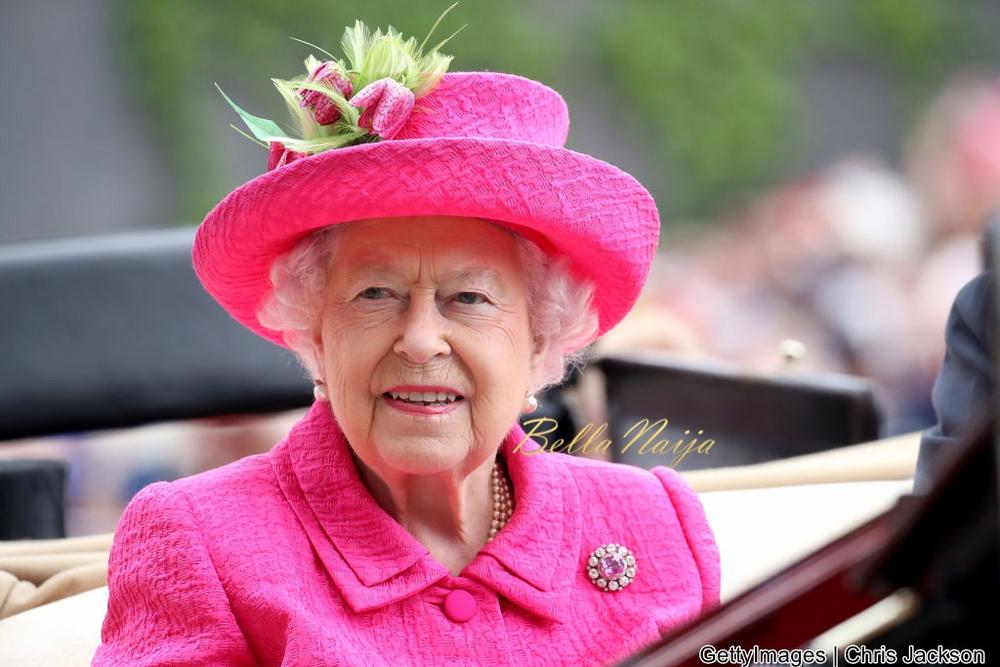Features
Chude Jideonwo: Why Queen Elizabeth II is My Person of the Year 2022

It can be confusing to be in the world today. The mesh of a truly globalised culture, thanks to technology, and a seismic change in values means we are dealing with several changes at the same time, and we have no firm ideas of the good or bad, right or wrong, boundaries and allowances.
People think they do, because our specie hates uncertainty, but look at how people approach the big moral and ethical issues of our time, and you see the double standards they have to operate under – as they insist on black and white, while living in the inevitable grey.
One of those issues that came up this year? How to address the legacy of Queen Elizabeth II (Elizabeth Alexandra Mary), who oversaw an empire that has been in turns brutal, evil, thoughtless, arrogant, impetuous, kind, gracious, thoughtful and wise.
Two things are important to take from the above statement: One is that it happened in turns. Very few truly good people are good all the time. Humans are often a mixture of behaviours, emotions, and actions that react to environment and context. Intentions are not always pure. Actions are not always consistent.
The second is perhaps the more important: There is no empire the world over that has not been this way. Not the Oyo Empire, not the Ottoman Empire, not the Roman Empire, not the Songhai Empire, and not today’s empires: Chinese, American, Russian. Empires, by their nature, are complex and complicated machines, much like any majestic jungle beast: Necessary for the ecosystem, frightful nonetheless.
There are no African or Black empires in history that have a record any gentler than the sum total of empires. So the British Empire’s failings are not of race, they are of power. They are not intrinsic characteristics of whiteness. They are an instinct characteristic of humanness – when given too much power, growing too quickly, without checks and balances.
It is into this world that Queen Elizabeth was thrust. One that was both possessed of a brutal history and yet with so much capacity to do good and negotiate its past while navigating the future. Not a lot of leaders in our recent history, and by which I mean the past century, have done a finer job of navigating these contending realities.
It is often necessary to be reminded that the search for perfect people, nations and institutions is fruitless. All we have is the messiness of being human and trying one’s very best.
So it is a monumental achievement, singularly hers, that she led the only monarchy that was still largely loved, respected and useful in a world that now claims to be irritated by empires, conquests and domination.
Managing the transition of those several colonies onto one of cultural equality, despite the complicated history and without any actual constitutional authorities, in a country with a diminishing economic position, is one of the finest balancing acts of power that you will see in any important institution anywhere in the world today. There is surely a reason all the powerful political leaders the world over, including the beloved Barack Obama, celebrated her fulsomely. They didn’t do the same for Margaret Thatcher.
From the political (apartheid, independence movements) to the personal (Diana, Meghan), it was a thing of beauty to watch her maintain the essence of the symbolic old with the acceptance of the inevitable new.
The world seems to think we don’t need the old. That monarchies are useless (they aren’t; there are just new forms) and that many old-time institutions are unnecessary. She knew that to be untrue, but she also knew not to fight the crowd, and so she continued the delicate dance that kept Britain rooted in its past while moving, with caution and wisdom, into the now.
And all of that she did through force of personality. First, her loud silence. Taking no sides, sharing no public opinions, and making way for new stars, she sacrificed her own necessary desire to be heard, to be understood, to be appreciated, for the greater good.
Then, her genteel sense of responsibility. There are people who look at her life and see only privilege, but that is a single story. No matter how much it is belittled, showing up for every sublime and mundane duty of the institution, the making of several painful family decisions in subordination to her public role, because she knew that this was her job, to live a dignified public life, and to corral the family to understand its symbolism in modern life was inspiring. Beyond inspiring, actually.
That showed up in her management of multiple prime ministers, her apartheid activism, her negotiation of independence, her stabilising of the British body politic and her expert multi-lateral diplomacy that countless leaders across the world have lionised.
To do all of this, she sacrificed a large part of her personal life. She thought it necessary to forgo that life in order to live a meaningful one. And she sought no credit for doing what she simply must.
In Downtown Abbey: A New Era, a man smitten said to Lady Mary Talbot (and I will paraphrase): “You should choose your happiness.” And she replied: “Unfortunately, I am too old-fashioned to believe that the only thing that matters is one’s own happiness.”
When people say, ‘there will never be another X’, I often flinch at the hyperbole. Not in this case, however. There will never be another Queen Elizabeth. Hopefully, as those who seek wisdom (in this generation and after) try to heal a world adrift in uncontrollable rage, and try to live lives that have meaning beyond today’s trends, her life will always serve as both model and anchor.




















